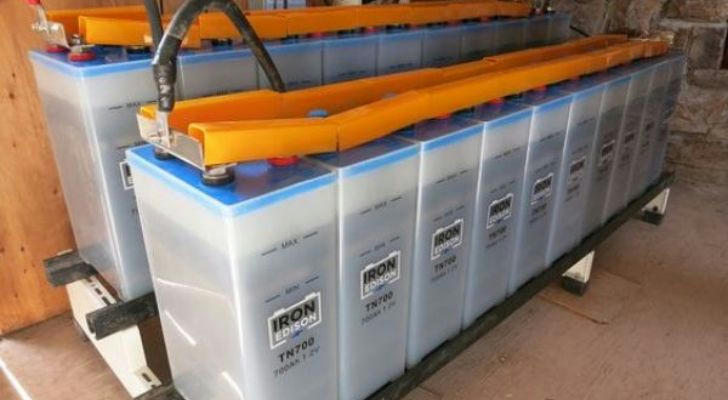Power Your Home on a Shoestring: The Cheapest Solar Batteries of 2025
Looking for backup power that won’t drain your wallet? In 2025, solar batteries have tumbled in price thanks to technological advances, competition, and tax incentives. Today, homeowners can find viable storage solutions starting at under $100 per kilowatt‑hour (kWh). Below, we explore the top budget options, compare costs, and help you choose the best deal for your needs.

If you’re looking for a way to power your home efficiently while reducing your energy bills, a solar battery might be the solution you need. Solar batteries store the excess energy produced by your solar panels during the day, so you can use that power at night or during cloudy days. While the initial cost of solar batteries may seem high, the long-term savings and environmental benefits can make them a wise investment. Let’s break down the types, costs, and factors to consider when shopping for a solar battery.
1. DIY Lithium Iron Phosphate (LFP) Packs: Ultra‑Low Cost
Innovative DIYers are building LFP battery packs from imported cells for as low as $75 per kWh, a fraction of commercial prices. By sourcing 320 Ah cells from China for around $1000 shipped and adding a basic battery management system, you can assemble a 5 kWh pack for approximately $375 total . While this route demands technical skill and carries warranty limitations, it represents the absolute cheapest entry point into residential energy storage.
2. Entry‑Level Prebuilt Packs: Around $100–$200 per kWh
For those who prefer off‑the‑shelf reliability, some Chinese‑made prebuilt systems start at about $107 per kWh. Brands like EG4 offer modular banks beginning at $1,500 for 5 kWh—approximately $300 per kWh installed when you include basic inverter integration and shipping. These units often come with a one‑year warranty and plug‑and‑play compatibility, making them a solid middle ground between DIY kits and premium brands.
3. Tesla Powerwall 3: Best Price per kWh Among Premiums
Tesla’s Powerwall 3 leads the premium segment with a competitive price of $947 per kWh, offering 13.5 kWh of usable storage at under $13,000 for the battery alone. When you factor in installation and supporting hardware, the all‑in cost typically ranges between $12,000 and $15,000 for a turnkey setup—still significantly below legacy prices above $1,500/kWh
4. Mid‑Tier Systems: $700–$900 per kWh
CNET reports standalone batteries (without installation) can be found in the $700–$900 per kWh range if sourced directly. Brands like Enphase and LG Chem occasionally offer promotional pricing around $800 per kWh, especially during off‑peak seasons. These mid‑tier systems balance cost, performance, and warranty (typically 10 years), making them a reliable choice for most homeowners.
5. Entry‑Level Commercial Packs: $1,000–$1,300 per kWh
According to Solar.com, the average installed cost sits at $1,300 per kWh before incentives, dropping closer to $1,000 per kWh after the 30% federal tax credit. This category includes budget‑focused off‑grid kits and basic backup systems from reputable suppliers, ensuring you get certified performance and professional support.
Comparing Total System Costs
DIY LFP Kit: Under $500 for 5 kWh (≈$75/kWh)
Prebuilt Budget Pack: ≈$1,000 for 5 kWh (≈$200/kWh)
Tesla Powerwall 3: ≈$12,800 for 13.5 kWh (≈$947/kWh)
Mid‑Tier Brand: ≈$7,000 for 10 kWh (≈$700/kWh)
Average Installed: ≈$5,000 for 5 kWh (≈$1,000/kWh after ITC)
Key Considerations
Capacity Needs: Small systems (3–5 kWh) can cover essentials like lights and fridge, while larger packs (10–14 kWh) support whole‑house backup.
Incentives: The 30% federal tax credit applies to battery costs when paired with solar panels, effectively lowering prices by nearly one‑third
Installation: Professional setup adds $500–$2,000 depending on complexity; DIY options may void manufacturer warranties.
Longevity: LFP chemistry often guarantees 5,000+ cycles (~15 years), while lead‑acid and some early‑generation lithium may need replacement after 5–7 years
Final Thoughts
While premium solar batteries once carried hefty six‑figure price tags, today’s market offers solutions starting below $75 per kWh for the true DIY aficionado and under $1,000 per kWh for mainstream installations. By balancing budget against performance and leveraging tax incentives, any homeowner can tap into affordable, reliable energy storage—keeping the lights on without emptying your savings.
A solar battery is a smart investment for homeowners looking to reduce their energy bills, improve energy efficiency, and contribute to a cleaner environment. While the initial cost of solar batteries can be high, the savings over time, combined with the benefits of energy independence and possible tax incentives, make them a wise choice. Whether you opt for a lithium-ion, lead-acid, or saltwater battery, understanding your needs, comparing costs, and exploring available incentives can help you find the most affordable and reliable solar battery solution for your home.
